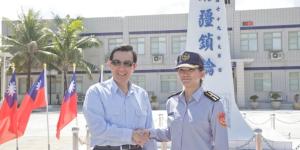Join us for a free one-day workshop for educators at the Japanese American National Museum, hosted by the USC U.S.-China Institute and the National Consortium for Teaching about Asia. This workshop will include a guided tour of the beloved exhibition Common Ground: The Heart of Community, slated to close permanently in January 2025. Following the tour, learn strategies for engaging students in the primary source artifacts, images, and documents found in JANM’s vast collection and discover classroom-ready resources to support teaching and learning about the Japanese American experience.
Mao sent this note to PLA Chief Lin Biao on May 7, 1966. It was subsequently called the May 7th Directive. It inspired the setting up in 1968 of “cadre schools” to reeducate party officials by bringing them closer to the people by working with them and by studying the teachings of Mao.
This resolution repudiated “ultraleftism” as seen in Mao-led movements including the Cultural Revolution.
Liu Jian is Consul General of the People’s Republic of China in Los Angeles. His essay appeared in a Los Angeles Times advertising supplement for ChinaWeek.
U.S. Deputy Secretary of State Blinken prepared these remarks to open his testimony before the U.S. Senate Foreign Relations Committee.
Ma Ying-jeou, president of the Republic of China (Taiwan), visited Taiping Island in the South China Sea. His predecessor, Chen Shuibian, also visited the island in 2008.
Assistant Secretary of State Russel delivered the 2016 Herbert G. Klein Lecture to open the USC U.S.-China Institute conference on “China’s Growing Pains.”
This CRS report was written by Ian E. Rinehart and Bart Elias.
Several CRS staffers contributed to this report on the EP-3 spy plane incident of April 1, 2001.
The FCCC survey looks at a variety of issues. This report is based on 142 responses. Journalists from more than 30 countries and territories belong to the organization.
The Beijing-based FCCC surveys its members on the issues they confront in reporting in China.
Pages
Featured Articles
Please join us for the Grad Mixer! Hosted by USC Annenberg Office of International Affairs, Enjoy food, drink and conversation with fellow students across USC Annenberg. Graduate students from any field are welcome to join, so it is a great opportunity to meet fellow students with IR/foreign policy-related research topics and interests.
RSVP link: https://forms.gle/1zer188RE9dCS6Ho6
Events
Hosted by USC Annenberg Office of International Affairs, enjoy food, drink and conversation with fellow international students.
Join us for an in-person conversation on Thursday, November 7th at 4pm with author David M. Lampton as he discusses his new book, Living U.S.-China Relations: From Cold War to Cold War. The book examines the history of U.S.-China relations across eight U.S. presidential administrations.





